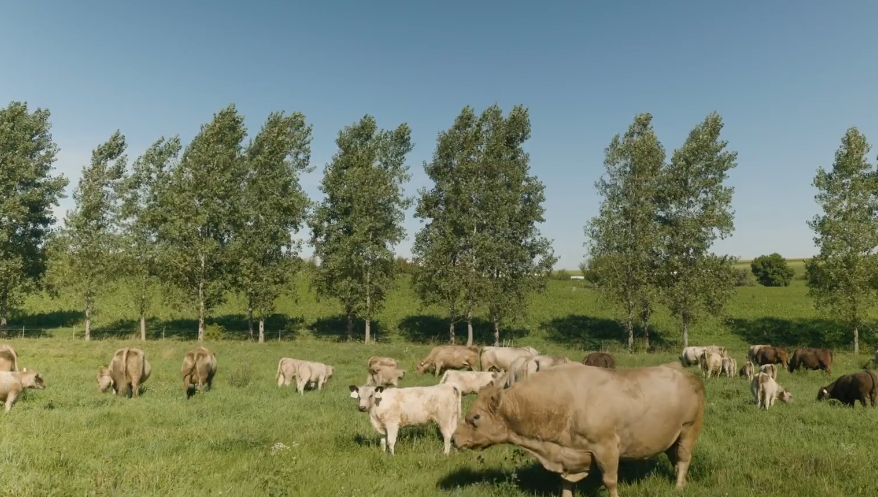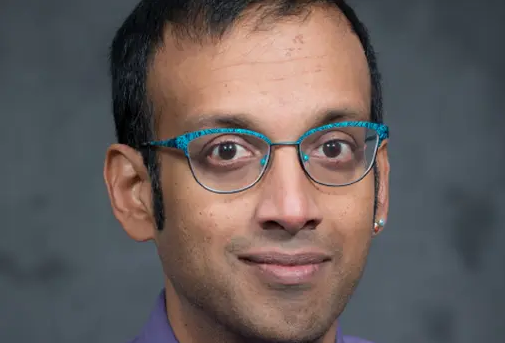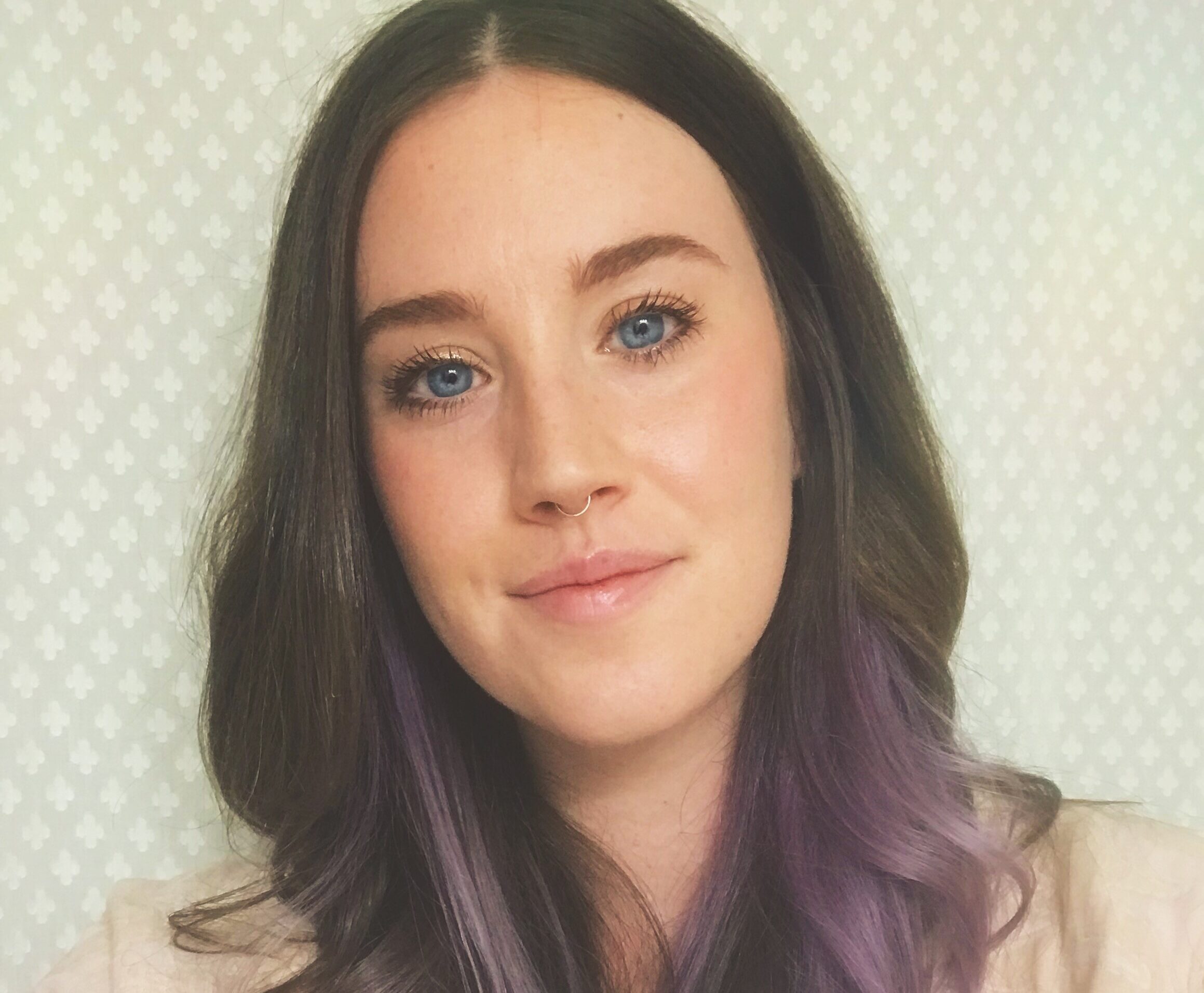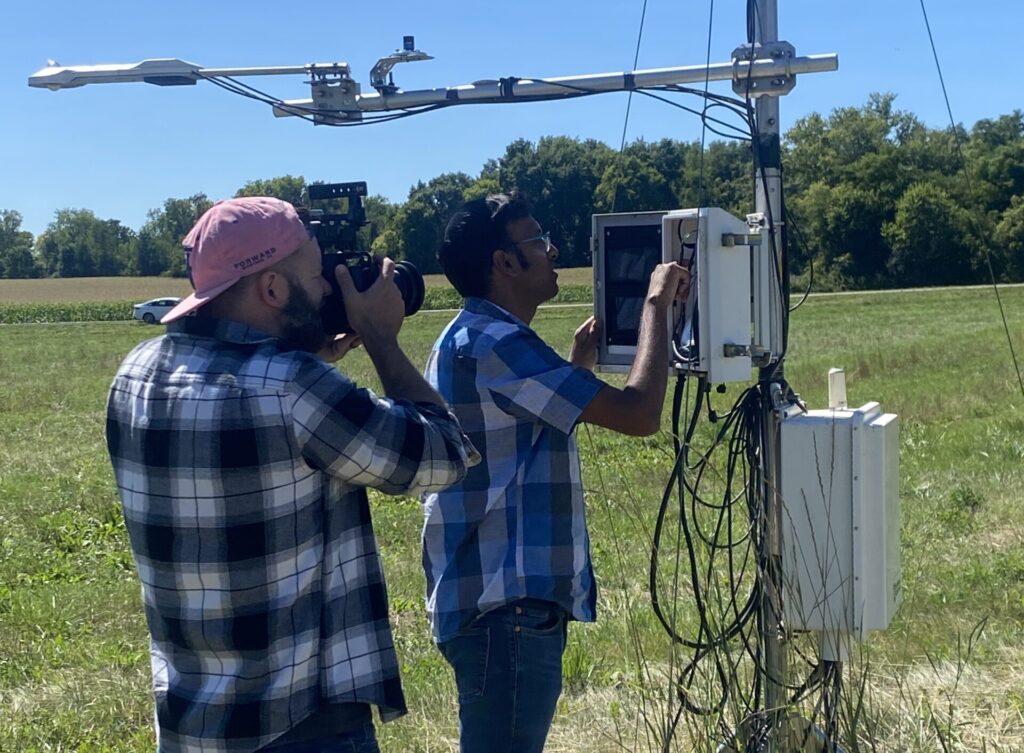PBS Wisconsin Education’s Meet the Lab digital resource collection was developed to connect students in grades 6-8 to real-world issues, cutting-edge research and the people using science to solve problems.
Climate Trackers: Superpowered by Ecometeorology was added to the collection in 2023 and recently won second place for Best Original Digital Content at the Wisconsin Broadcasters Association Awards. It takes viewers to Seven Seeds Farm in Spring Green, Wisconsin, where owner Michael Dolan implements sustainable farming practices, including silvopastures.
On a silvopasture, trees are planted on grazing lands to help offset greenhouse gas emissions.
“It’s not the cow, it’s the how,” Michael said about his philosophy on sustainability.

Cows graze on a silvopasture at Seven Seeds Farm.
But silvopastures aren’t the only combined fields on Seven Seeds Farm.
University of Wisconsin–Madison Department of Atmospheric and Oceanic Sciences professor Ankur Desai and his lab conduct ecometeorological research, a cross-pollination of meteorology and ecology. At Seven Seeds Farm, they investigate how cattle farming on silvopastures impacts climate.

Professor Ankur Desai.
“There has been a boom in research and funding related to Nature-based Climate Solutions (NbCS), which are climate mitigation approaches that manipulate natural systems through management and design to increase carbon sequestration and decrease greenhouse gas emissions,” said Bailey Murphy, a former researcher at Ankur’s lab who is now at Oak Ridge National Laboratory in Tennessee. “The antidote to apathy is action, and this solutions-based approach has led to mobilization and innovation around climate mitigation science.”
She added that silvopastures are just one example of agricultural NbCS, and there’s a lot researchers are still learning.

Researcher Bailey Murphy.
Ankur’s lab recently began studying the ecological benefits and risks of agrivoltaics. The practice involves placing solar panels on a farm in a way that allows for food production or animal grazing on productive lands “while also allowing for solar energy production, which then feeds back into supporting farm income stability.” Ankur said early studies in the southwest demonstrated a decrease in water use and a productivity increase for some crops, but more research is needed to see if similar results will be seen in the midwest.
“I look forward to seeing what we learn from a new joint UW and Alliant Energy experiment in Stoughton, Wisconsin, while integrating a broad range of perspectives, helping deconflict land use challenges … and finding ways for Wisconsin farms to maintain economic prosperity and environmental sustainability.”

Education executive producer Ryan Hendricks (left) films Ankur Desai (right) at Seven Seeds Farm.
For Ankur, including different perspectives and areas of expertise are important for the future of climate science as a whole.
“What I am excited to see is a large shift in the community toward application, scaling and verification of climate solutions. Much of this work requires pulling in expertise from a range of disciplines,” Ankur said, adding that everything from plant ecology and applied math to Indigenous studies and the creative arts can provide meaningful insight and expertise.
“Climate science can sound very nebulous to many people. What does it involve and who does this type of work? I hope the Climate Trackers story demonstrates that climate science is a ‘big-tent’ field that only works because it draws in people from many walks of life and backgrounds, with skills and interests developed in different areas and paths, working together to develop the science and also apply it to real-world problems.”
Bailey encourages young people to “explore their own curiosity about science and the natural world. Maybe this looks like signing up for a STEM summer camp and learning to code, collecting plant specimens to identify on a hike through the woods or designing their own chemistry experiments in their kitchen.”
Whatever moooves kids now could spark meaningful connections in the future. 🐄
Watch Climate Trackers: Superpowered by Ecometeorology in the PBS Wisconsin Education Meet the Lab collection. The video is also available on the PBS Wisconsin Education YouTube channel.
 Passport
Passport









What do you think?
I would love to get your thoughts, suggestions, and questions in the comments below. Thanks for sharing!
Tawny Morrison